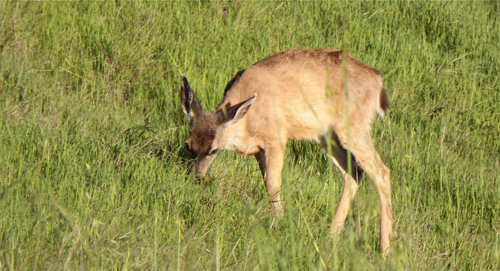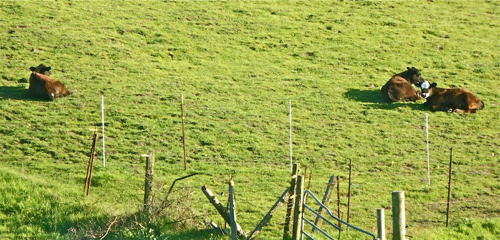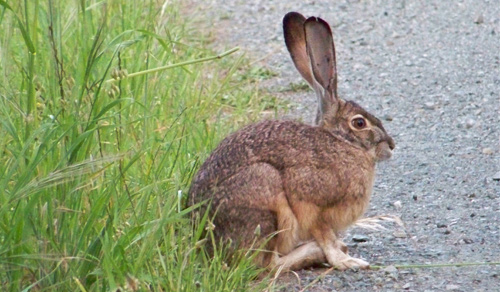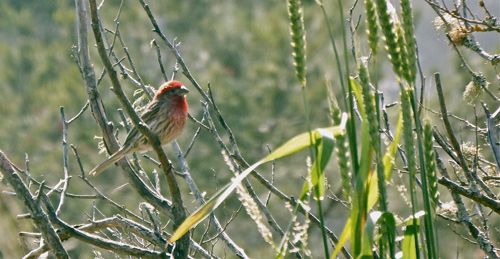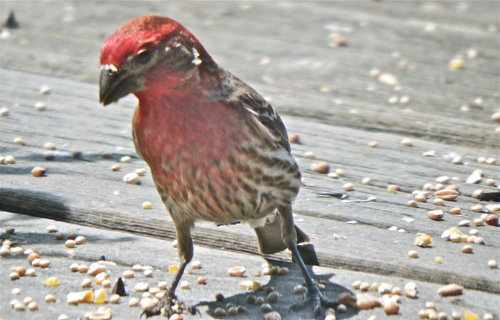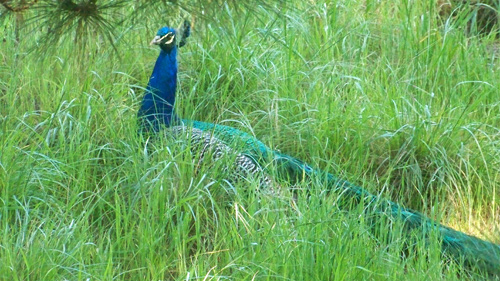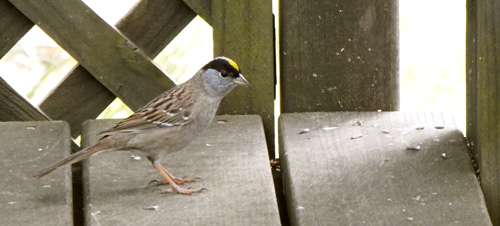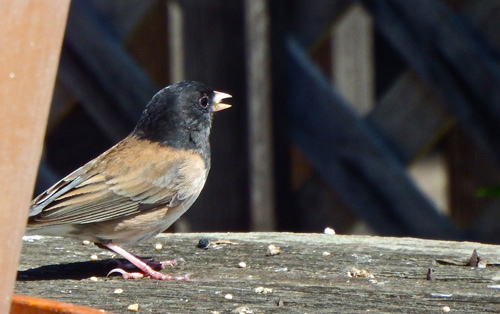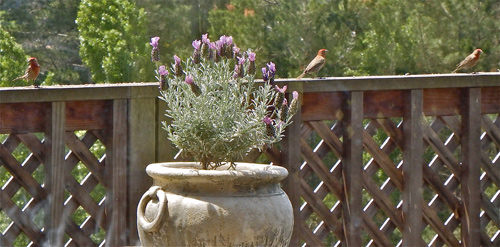What many of us on the coast like most about West Marin these days is its mix of land and animals, both wild and domestic. They provide a refuge from the violence, hatred, greed, and misfortune that dominate the news coming in from Kabul to Kiev, from Kenya to Korea.
Horses from Point Reyes Arabians stable graze in a pasture next to mine. Downtown Point Reyes Station can be seen through a gap in the trees at right.
The horses drink from, and in warm weather cool off in, this stockpond and another further downhill. Originally created to provide water for cattle, the ponds these days are watering holes for deer, such as these, and other wildlife, along with the horses.
A young buck grazes alone near Mitchell cabin. Most of the year, I can spot blacktail deer around the cabin virtually every day. Herds of 12 and 14 animals are not uncommon. Deer, as most of us know, will eat flowers, vegetables, and shrubbery if given a chance. At Mitchell cabin, any plants I want to protect from deer are grown in containers on my deck. (Photo by Lynn Axelrod)
Three cows laze about Carol Horick’s pasture across the canyon on a warm afternoon last week. (Photo by Lynn Axelrod)
The jackrabbit that has taken to hanging out along my driveway was there every day this past week, usually with a companion. The other rabbit is more skittish, however, and hops away whenever it sees me. As a result, I’ve yet to get a photo of the two of them together.
House finches are year-round residents of West Marin, but they seem more plentiful at this time of year. Their cheerful warbles are as colorful as the males’ feathers. (Photo by Lynn Axelrod)
Male house finches are usually red, with the intensity depending on the season. Their coloration is derived from the fruits and berries in their diets. Female house finches tend to be light brown with white streaks. (Photo by Lynn Axelrod)
When it comes to coloration, however, no other bird around Mitchell cabin can match this lone, male peacock, which for three years has been hanging out with a flock of wild turkeys. Peafowl which originated in India were introduced on the US mainland in California back in 1879.
A golden-crowned sparrow looking for birdseed on my deck. People have compared the bird’s song to Three Blind Mice sung in a minor key. (Photo by Lynn Axelrod)
Although it’s called an Oregon junco, this variation of junco can be found from the Pacific Coast to the Rocky Mountains, as far north as southern Alaska, and, occasionally, as far east as Nebraska, Kansas, Oklahoma, and Texas. Their song is a sweet trill. (Photo by Lynn Axelrod)
We’ll close with three house finches in a classical pose on the railing of my deck. Originally native to Mexico and the southern United States, house finches in the 1940s were introduced on the East Coast where they have rapidly spread. Ornithologists estimate there are now between 267 million and 1.7 billion of them in North America. (Photo by Lynn Axelrod)



